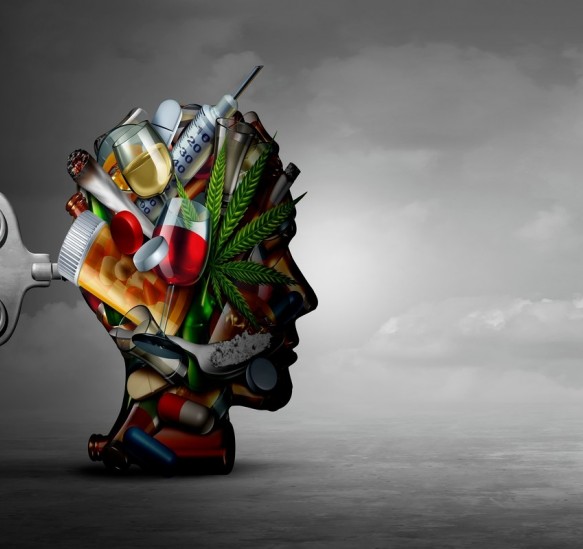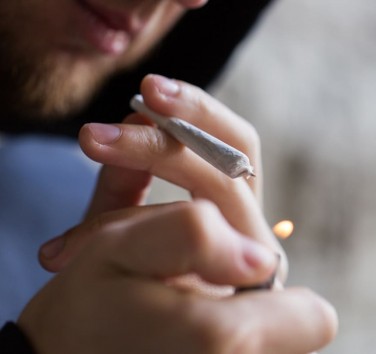What is addiction?
First of all, it is important to know that addiction can affect anyone at any age. This means that small children, as well as grandparents, can be affected. Addiction is defined as the body's adaptation to a certain product. For example, the more one takes a product, the more the body adapts to it and the less the effects
Otherwise known as "tolerance", addiction can be distinguished by two different types
- Positive addiction means an increase in the ability to withstand the effects of a product or environment
- Negative addiction means that the body no longer adapts to the usual dose, as in the case of medication, and the dose must be increased
There are different causes of addiction such as drugs, different environments, sounds and many others. Almost everything we own and consume can cause an addiction. Each person reacts differently to addiction and requires a longer or shorter time depending on their personalities or bodies. For example, a person who lives in a noise-isolated place such as the countryside, and who moves to the city for various reasons, will take longer to adapt to the noise of the city and the constant noise if it is a large city, than a person who lives in the city and moves to the country, who will thus enjoy a noise nuisance almost nil
Used in various fields, addiction is used in medicine to determine whether or not the dose of a drug should be increased. For example, if a person has been using a drug every day for years, after a certain period of time, there is a good chance that he or she will need a higher dose to feel the effects.
There is a rather striking example in antiquity to understand how addiction works. The so-called Mithridates VI Eupator, King of Pontus, was very much afraid of being poisoned by his subjects or by rivals. Thus, he consumed large quantities of poison over a long period of time in order to accustom his body to the poison and not to die from it
One day, when he wanted to commit suicide, he swallowed a large portion of this poison and according to the legend, he did not die. The reason is quite simple, because of his habitual and perpetual consumption of this poison, his body had adapted to it and it would have taken a larger dose of this poison to kill him
Do not confuse addiction with dependence!
Addiction is a process considered beneficial for the body, although the negative phase of this adaptation is not necessarily good for health if the drug is considered harmful at high doses
Addiction, on the other hand, is more of a pathological behavior, meaning that the brain cannot move forward, think, or even function without the input of a substance
This is what can happen with drug users who become addicted to drugs and are unable to get rid of them. We also see this behaviour in people who smoke tobacco and those who become addicted to alcohol. This behaviour is very problematic, as it can drive the person deeper into the addiction and isolate them socially by limiting interactions with other individuals
Addiction can also mean having an irreversible urge to use or do something, knowing that this action or product is harmful to our mental and physical health. This is a real problem that takes place mainly in the brain, as we should be aware that drugs are designed to appeal to the users in terms of their tastes, effects and aspects
Drugs can also lead to a form of addiction because of the effects felt, the taste and the price which can play a major role. Medications are also used in drug use because they are cheap and available without a prescription.
An individual who is independent of an action or substance has the desire to stop, but is often confronted with the reality of life and may feel excluded from society. Individuals with the willpower make it through and those without the willpower to quit don't make it through. It's all in the brain!
Can CBD cause an addiction to the consumer? Many people ask this question, but who really knows the answer? We will answer this question by explaining what CBD can cause as a type of addiction and especially, if it exists

Can CBD cause an addiction?
As we explained above, addiction is different from dependence on a certain product or material. CBD is subject to all kinds of questions and queries, including that of addiction. Research has been done to explain the relationship between CBD and addiction, if there is one, and to explain the reason for it
First of all, it is important to know that CBD does not bind in the same way as THC to the receptors located in our body. Although these two molecules are extremely close chemically, their action is quite different. THC will bind to different receptors, while CBD will not bind to the receptors themselves, but to different molecules
Scientific studies have shown that CBD may activate more than 60 molecular pathways in the body to exert its action. This suggestion is not strictly speaking well-founded and reveals simple observations without scientific consensus or proper scientific reporting. It should therefore be taken with a grain of salt, although CBD will never cease to amaze us!
In 2011, a scientific study helped to solve this mystery. The latter, published in the journal Current Drug Safety, shows that in clinical trials of CBD on humans, no addiction was detected
But one point is quite important to understand about this addiction to CBD. It must be understood that the dose varies between each individual and that the frequency of consumption will also vary between each individual. The reason why one consumes CBD also varies between each individual
For example, a person who uses CBD to treat his or her ailments will need more or less doses of CBD than a person who uses it to detach from his or her recreational cannabis use. As well as the frequency of use, which will vary greatly in order to tailor consumption to need
However, what is demonstrated in this article, shows that CBD does not cause addiction to the consumer. That is to say that the latter will not need to increase the dose as the consumption period progresses. It can therefore very well remain on a 5% oil throughout the consumption period without changing and constantly feeling the positive effects of CBD.

Can CBD cause a reverse addiction?
You may not be familiar with this term? Reverse addiction is, as the name suggests, the opposite of addiction. If addiction is defined as an increase in dose to feel the effects, then reverse addiction means that the user would need a lower dose to feel the effects
This information is not scientifically proven and is more of an assumption based on observation. This could cause real problems for consumers who would experience this effect, as it means that the dose needed for their well-being would be lower than what they are currently consuming. This could increase the risk of experiencing side effects, such as severe fatigue and dizziness, although these are rare.
Unlike addiction, this reversed form would show no signals. This is problematic because the user cannot know if they are using the right dose, or if they are using too much. This form would be observed over a long period of time, as with normal addiction that builds up over time
Reminder: This information is not scientifically proven, so it should be taken separately and not relied on.
Addictive cannabinoids?
We have seen that CBD does not cause addiction, but is this the case for the other components of cannabis sativa? It is important to know that this plant is composed of several hundred cannabinoids and that their study has focused on THC and CBD, which are the two main and most interesting for science.
Let's start with THC, which is the molecule responsible for the "high" experienced by recreational cannabis users. When an individual consumes recreational cannabis, THC, which is present in large quantities, will bind to the receptors of our endocannabinoid system located in our body
The effect of THC is to "putthe persondown", to "relax" with the "high" effect. In the brain, THC will down-regulate the endocannabinoid system, resulting in the above effects
The high is usually the reason why some people use recreational cannabis, because it helps them forget about their daily worries. But THC is responsible for the addiction felt by some recreational users.
In fact, over time, THC will down-regulate the endocannabinoid system, but the dose will have to be higher each time to feel the effects. This will result in a higher consumption of cannabis and an increase in the risks associated with that consumption. But when addiction is felt, another factor comes into play. The endocannabinoid system will have a hard time coping with the stress, because it has become too dependent on THC
This effect is noticeable over a long period of time, but is easily observed in an individual who is experiencing these effects. The first time they use it, they will not feel the effects, or at least they will not feel the expected effects and will increase their use within a short period of time

Is this effect responsible for cannabis addiction?
It is possible that this effect accentuates an individual's dependence on this plant, although the primary reason is the "high" felt by the individual. During the addiction, it is very likely that the individual will sink into his consumption and find a refuge there while increasing his consumption
The effect felt will make him think that it is the only solution available to him and that he must continue to consume it. The risk is of course to become addicted to it, or to suffer from the secondary and dangerous effects of recreational cannabis consumption
Despite this, it is important to know that CBD is not a medicine!









